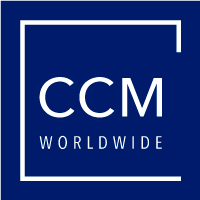Strategic Environmental Assessment (SEA) of Oil Exploration/Exploitation in the North Albertine Rift (North Kivu and Orientale Provinces) – Scoping Study
Full description of the project
The Strategic Environmental Assessment serves to set the background and conceptual, legislative, regulatory, biological, ethnological, sociological, etc. frameworks on which any project-specific Environmental Impact Assessment (EIA) can be conducted.
The Strategic Environmental Assessment (SEA) procedure in two phases:
1) a framing study,
2) the SEA itself. The present mission concerns the framing study which aims to :
- Describe the institutional and legal contexts that govern oil exploration/exploitation in the DRC and those that ensure an environment that guarantees the sustainable development of the populations of the Rift region;
- Clearly define the geographical, physical, biological and human setting of the SEA;
- List the sources and receptors of impacts and the methods and means to study them during the SEA;
- Collect the data, or sources of data, to be analyzed and compared in the cost/benefit or cost-effectiveness analyses10 of SEA alternatives and variants;
- Define the issues to be addressed in the SEA considering the specific context in which the program/policy is prepared and is likely to be implemented.
Pays
Bénéficiaire
European Union Delegation
Organisme de financement
Union Européenne
Full description of the project
The Strategic Environmental Assessment serves to set the background and conceptual, legislative, regulatory, biological, ethnological, sociological, etc. frameworks on which any project-specific Environmental Impact Assessment (EIA) can be conducted.
The Strategic Environmental Assessment (SEA) procedure in two phases:
1) a framing study,
2) the SEA itself. The present mission concerns the framing study which aims to :
- Describe the institutional and legal contexts that govern oil exploration/exploitation in the DRC and those that ensure an environment that guarantees the sustainable development of the populations of the Rift region;
- Clearly define the geographical, physical, biological and human setting of the SEA;
- List the sources and receptors of impacts and the methods and means to study them during the SEA;
- Collect the data, or sources of data, to be analyzed and compared in the cost/benefit or cost-effectiveness analyses10 of SEA alternatives and variants;
- Define the issues to be addressed in the SEA considering the specific context in which the program/policy is prepared and is likely to be implemented.
Country
Recipient
European Union Delegation
Funding organization
Union Européenne


